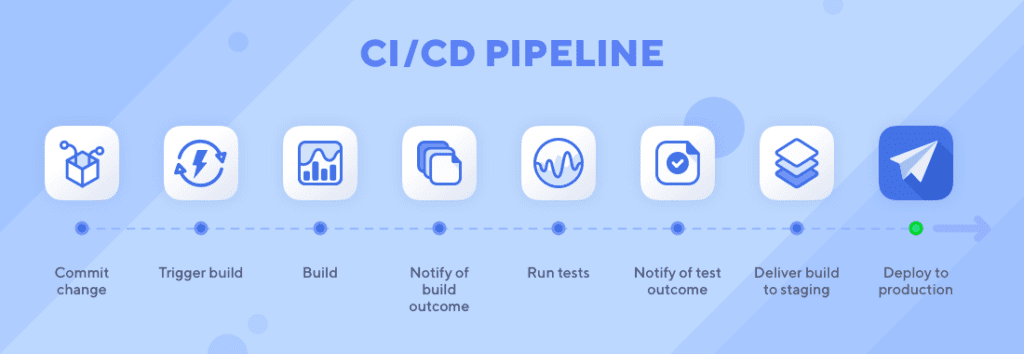What exactly is DevOps?
DevOps is the combination of Development and Operations. Moreover, it is the combination of cultural philosophies, practices, and tools that increases an organization’s ability to deliver applications at a faster pace compared to the traditional software development process.
Challenges DevOps tries to solve?
DevOps tries to solve the problems that occur in the case of the traditional development lifecycle.
- Lack of collaboration
The development team codes the application whereas the operations team comes with the responsibility of deploying and operating the application. The development team might hand over the deployment document to the operations team, but sometimes it's not up to the mark for deployment. This might stretch out the release of the application. Here comes DevOps which follows the streamlined process for deploying the application hence reducing release timelines drastically.
- Security
It is also important aspect to look at if there will be any security implications after deploying the application. In traditional methods, there are many manual tasks, and the checklist needs to be followed, to make the application secure. But DevOps with security guidelines also known as DevSecOps highlights the importance of integrating security with the applications.
- Enhanced Scalability
As applications grow with more user interaction, there will be a need of updating the infrastructure supporting needs to be able to scale up to handle the increased load. Automation and consistency help you manage complex systems efficiently and with reduced risk. This can be achieved with load balancers and auto-scaling.
- Maximize Efficiency with Automation
DevOps reduces the efforts for manually deploying the app, preparing the deployment environment, configuring the build job, and configuring the user access and permissions. CI/CD is one such example.
CI and CD stand for continuous integration and continuous delivery/continuous deployment. In very simple terms, CI is a modern software development practice in which incremental code changes are made frequently and reliably. The code is then delivered quickly and seamlessly as a part of the CD process. The CI/CD pipeline refers to the automation that enables incremental code changes to be delivered quickly to production.

Tools and Technologies in DevOps Scope:

Linux & OS basics - As 90% of the applications reside on Linux OS, make it is important to learn about.
Cloud Providers - Most companies started using virtual resources rather than handling physical hardware. There are many cloud providers in the market such as AWS, Azure, and GCP. One can choose any one of them to get started.
Scripting Language - DevOps Engineers should be aware of at least one scripting language such as Python. This will be useful while developing scripts for automation.
Containers - Docker is a software platform that allows you to build, test, and deploy applications quickly. Docker packages software into standardized units called containers that have everything the software needs to run including libraries, system tools, code, and runtime. Using Docker, one can quickly deploy and scale applications easily.
Container Orchestration - Kubernetes also known as K8s, is an open-source system for automating deployment, scaling, and management of containerized applications on a larger scale.
Infrastructure as a code - Contains infrastructure provisioning tools such as Terraform & infrastructure configuration tools such as Ansible, Chef, and Puppet.
Version Control - GIT is the most popular version control tool which tracks the changes related to code and manages them in a single repository.
